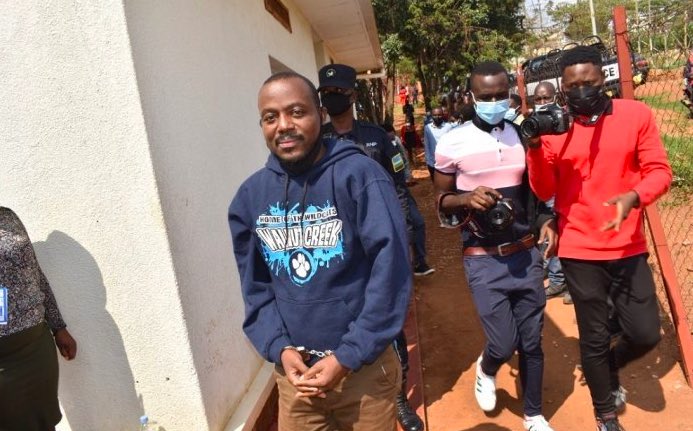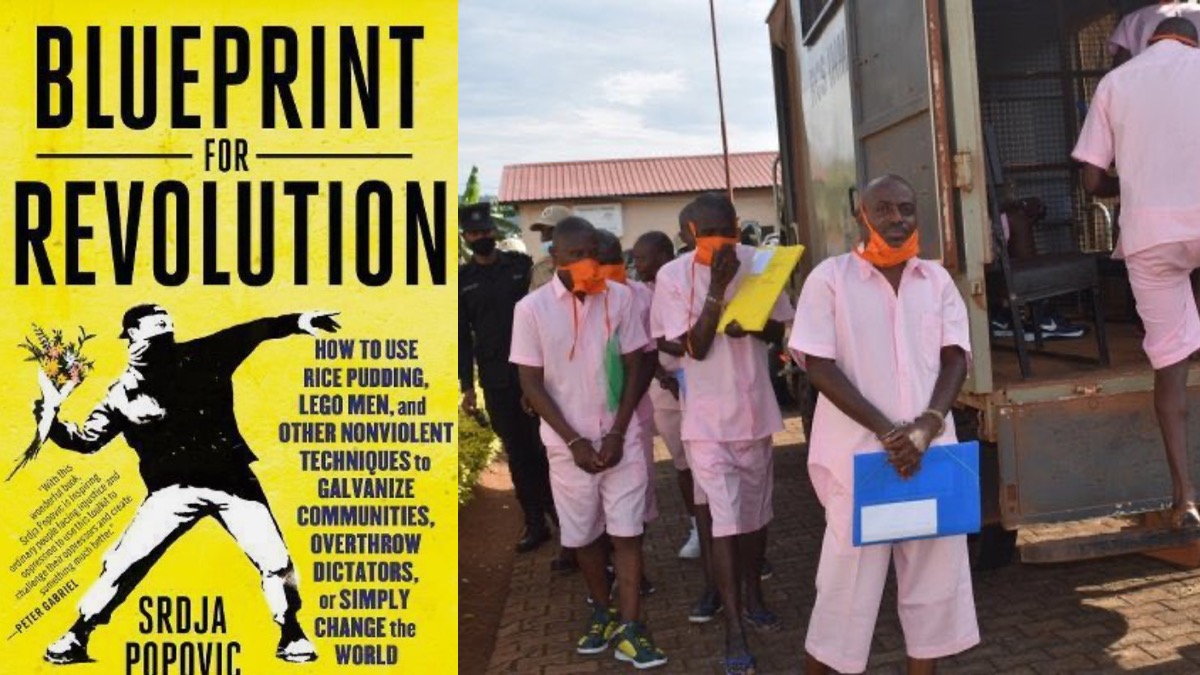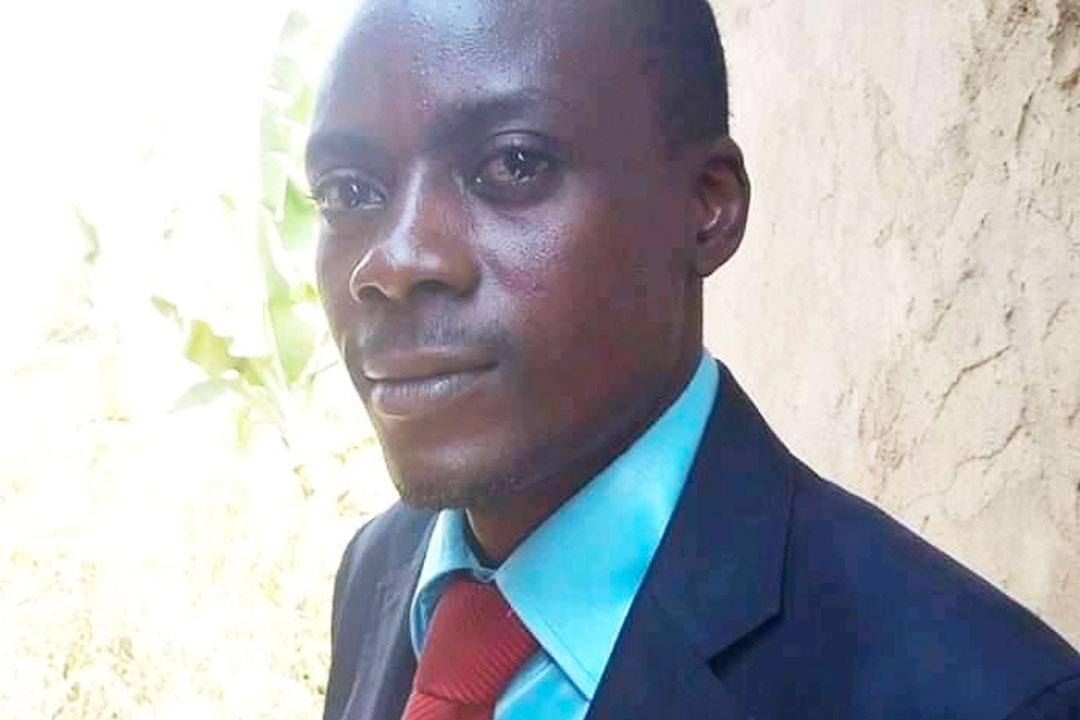After spending three long years in detention, nine individuals arrested for reading a book considered by Rwandan authorities as incitement to rebellion are finally set to face trial. Scheduled for October 18, 2024, at the High Court of Nyamirambo, this trial marks a pivotal moment amid increasing criticism over Rwanda’s handling of freedom of expression and human rights.
On October 13, 2021, the eve of the International Day of Solidarity with Political Prisoners in Rwanda, known as “Ingabire Day,” several individuals were arrested for reading and sharing the book “ Blueprint for Revolution: How to Use Rice Pudding, Lego Men, and Other Nonviolent Techniques to Galvanize Communities, Overthrow Dictators, or Simply Change the World ” by Serbian author Srdja Popović.
This book, which outlines nonviolent strategies to resist authoritarian regimes, was perceived by the Rwandan government as a threat to public order. Among those arrested was Théoneste Nsengimana, a journalist and director of Umubavu.com, an online media outlet known for criticizing the government. Eight others, affiliated with the opposition party Dalfa UMURINZI, led by Victoire Ingabire, were also detained. This group includes Hamad Hagenimana, Emmanuel Masengesho, Alphonse Mutabazi, Marcel Nahimana, Jean Claude Ndayishimiye, Alexis Rucubanganya, Sylvain Sibomana, and Joyeuse Uwatuje. Each of them faces up to 15 years in prison.
The charges include “incitement to public disorder” and calling for rebellion against the regime. Beyond reading the book, some are accused of participating in online training led by two Serbian activists on nonviolent resistance tactics such as protests, boycotts, and promoting citizen awareness of their rights.
The accused are all members of the Dalfa UMURINZI party, closely aligned with Victoire Ingabire, an opposition figure who has been trying for over four years to legally register her party in Rwanda. Her efforts have been consistently blocked, and this case is widely seen as another attempt to suppress political opposition in a country with limited pluralism. The arrest of individuals linked to an unregistered political party, combined with the criminalization of reading a book, sends a troubling message: any form of criticism or political organization could be perceived as a threat to the ruling authorities and met with severe consequences.
The High Court of Nyamirambo, which is handling the case, is authorized to preside over serious charges such as high treason, state security violations, and acts of terrorism. The transfer of the case to this court reflects the gravity of the accusations against the group, who are alleged to have provoked and incited an uprising or disorder among the public.
According to Rwandan law, anyone who incites the public to rise against the government, provokes unrest, or acts with the intent to sow disorder is guilty of a criminal offense. Convictions for such crimes carry prison sentences ranging from 10 to 15 years.
Since their arrest, the nine accused individuals have spent three years in detention without trial, a situation criticized by international organizations such as Amnesty International and Human Rights Watch. These groups describe the prolonged detention as arbitrary and a clear violation of the right to a fair trial, a right enshrined in international conventions to which Rwanda is a signatory.
Justice Delayed is Justice Denied
Rwandan law allows a suspect to be held in pretrial detention for an initial period of up to five days, with a possible extension of an additional five days if the investigation is incomplete. After this 10-day period, further extensions must be justified, and no person should remain in detention for more than six months without trial. However, the three-year detention of these individuals, accused of reading Popović’s book, highlights Rwanda’s failure to follow its own legal procedures. This raises concerns about the independence of the judiciary, often viewed as a tool for political repression to silence critics and weaken opposition.

The upcoming trial on October 18, 2024, is being closely monitored by both national and international observers, who view this case as a litmus test for judicial independence in Rwanda. This case poses fundamental questions about the criminalization of ideas and the ability of citizens to express themselves without fear of retaliation. Popović’s book, which advocates peaceful resistance, contains no incitement to violence, calling into question the legitimacy of the charges against the accused.
Beyond this specific case, Rwanda’s political climate remains deeply concerning. Recent years have seen increasing crackdowns on independent media, opposition parties, and human rights defenders. The criminalization of reading a book appears as an attempt to control not only people’s actions but also their thoughts.
If convicted, the three years the accused have already spent in detention will be deducted from their sentences. However, if acquitted, the law offers no provisions for compensating the harm they have endured.
This trial has attracted international attention, with many viewing it as a crucial moment for Rwanda’s justice system. As the October 18, 2024 hearing at the High Court of Nyamirambo draws near, the fate of the accused remains uncertain. The outcome of this trial is critical, not just for the accused but also for the future of freedom of expression and fair justice in Rwanda.
Prudence Nsengumukiza
Jambonews.net





